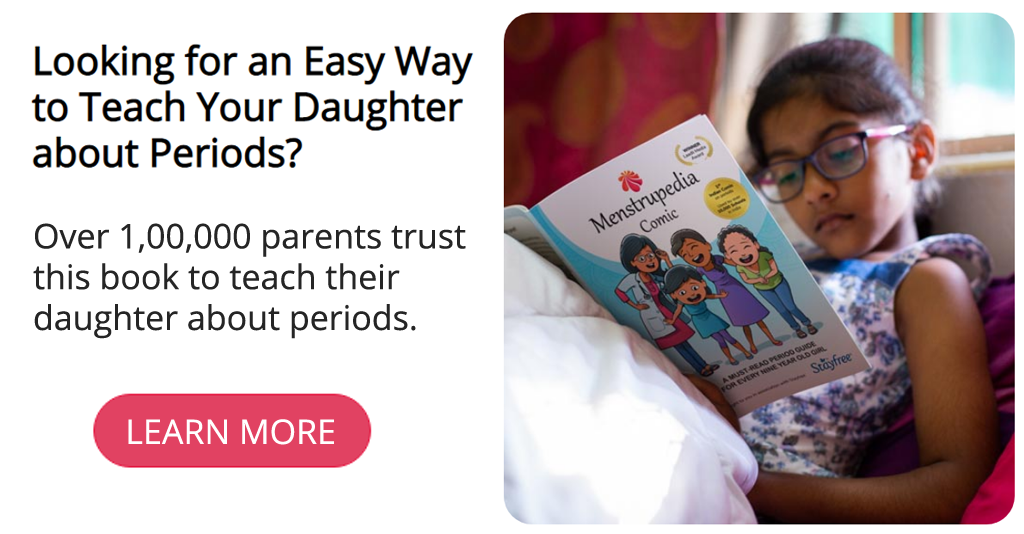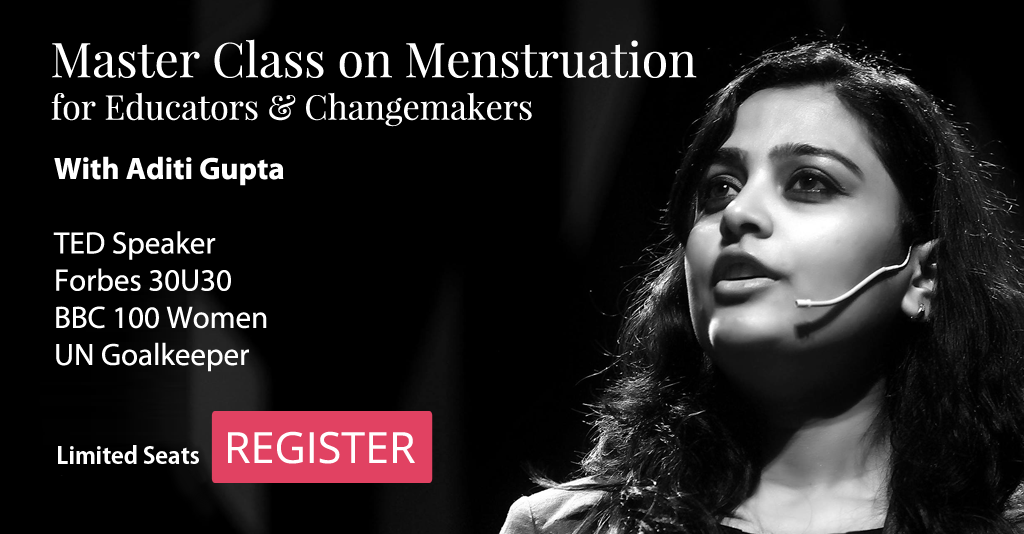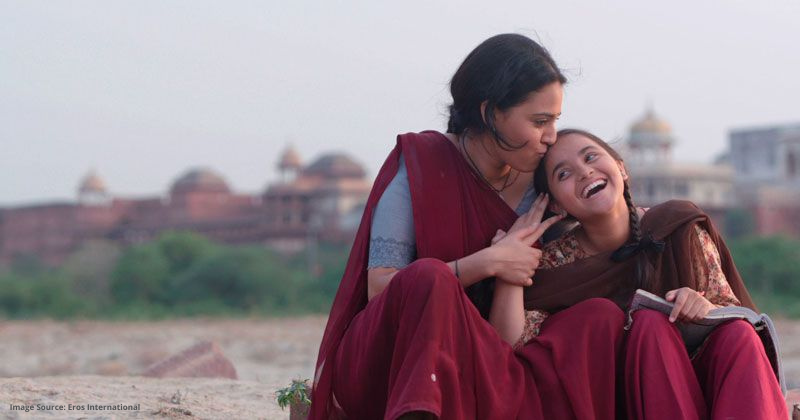This is a winning entry of our writing contest on “Periods and Popular Culture” by Purvi Vaswani.
Since a very long time, periods have been a taboo. People tend to not talk about periods even though it’s a natural process. Not only adults, but teenagers behave in a similar way as well. It’s not surprising that in real life, 9 out of 10 menstruators completely hide the fact that they are on their period. They usually do the following:
• Tuck sanitary products in a pocket or sleeve
• Carry a handbag with them to the toilet to hide sanitary products
• Avoid wearing white/light clothing
• Cancel plans with friends/partners
• Avoid any physical activity
In mainstream culture, it seems that periods are all too often side-lined, hidden from view, or simply ignored. Because pop culture and mainstream cinema have a great influence on teenagers, sometimes they too are embarrassed to talk about periods or menstrual hygiene.
Often, boys are not educated about menstruation and hence they tend to be ignorant about the topic and the problems faced by menstruators. However, over time, things have changed and people have become more aware about periods, PMS, menstrual hygiene and its importance. Campaigns like #WhispersBreakSilence, #LetsTalkPeriod, #NoMoreLimits, #MenForMenstruation and Menstrupedia comics have helped in the understanding and spreading of awareness around the topic of menstruation.

Though pregnancy is considered to be a very important part of a woman’s life and is portrayed quite often on television and mainstream cinema, menstruation is believed to be dirty and shameful. People who menstruate are not allowed to enter the kitchen or temples and are isolated from the rest of the family during their periods. These taboos always prove to be counter-productive for young girls and they start believing that they are unclean. These stigmas around periods need to be acknowledged and removed. However, as the time has passed, people have evolved and so has their thinking. People are now more accepting about menstruation as a natural phenomenon. More and more people are trying to spread awareness and believe in normalizing periods.
Personal Experience: I was around 10 when we were first told about periods. All the girls were called into a separate classroom and told about menstruation. I was a bit scared and did not want to talk to any guys after that. It was a weird feeling. I did not know what to do. But as I grew up, I grew into further understanding. I became less awkward while watching period commercials on television and in movies. I began to understand its influence on the general public. I came to know that this was a way of slowly normalizing periods and in pulling out deep-rooted taboos.
Popular Culture Acknowledging the Need for Period Awareness: On the internet, several short films and videos are made about the different problems faced by people who menstruate. These people fight various taboos and societal norms surrounding periods. Movies like Padman showcase how involved men are getting in normalizing periods and solving the plight of millions of women. In the movie, the main lead actor managed to provide women with cost-effective pads while fighting a backlash from society over an issue whose fight was long overdue. Another film called Phullu is based on the lines of Padman. It highlights how women in some rural areas literally isolate themselves while on periods and do not believe in wasting money on pads. In a time when women are working towards being more aware of how their body functions, there are still taboos associated with periods and the requirement for period products. While women wish to move forward in this dialogue, there are many societal stigmas holding them back from doing so.
The Urban Perspective: Discussions in our urban spaces are moving onto more sustainable period practices. ‘Period Paatu’ by Sofia Ashraf highlighted the pad/cup/tampon urban dilemma. This wonderfully crafted song also showcased how certain classes of women are more vocal about periods and associated conditions. Our mainstream media has a long way to go when depicting the natural workings of a woman’s body. From showing period blood as blue, to showcasing period poverty in villages, our media still has many lengthy steps to take to incorporate the day-to-day happenings of a woman’s period which includes pain, self-care and mood changes. Our period stories today only speak of vast reform but do not do a great job of commenting on the everyday changes women experience while on their period.
Yes, with the wave of discussions on the rise, it is about time there are more pop-culture references to menstruation. We should also keep in mind that not all menstruators are women. So we need to take more inclusive steps going forward with scriptwriting and the on-screen depiction of menstruation. Large strides have to start as small steps, and these steps have to start now.
Author: Purvi Vaswani

Purvi Vaswani is a student of class Xth based in Nagpur. She is currently preparing for her Boards Examination. She enjoys writing articles and blogs and loves reading books and hopes to be able to read & write more often. She feels that writing on taboo topics like menstruation, is a way of reaching out to people and being able to empathize with their problems. She hopes to bring about a change through her writing. Here is her Instagram handle: @dazzle_2004
Edited by: Divya Rosaline







